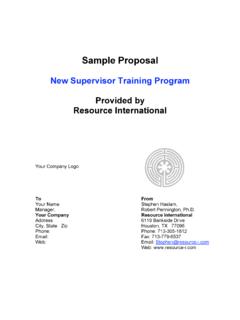Transcription of STANDARDS FOR BACHELOR OF TECHNOLOGY DEGREES IN ...
1 STANDARDS - BTech Eng NAQ 1 of 12 17 August 2009 STANDARDS FOR BACHELOR OF TECHNOLOGY DEGREES IN ENGINEERING (ENG) ECN/DOC 01/09 Approved by ECN on 03-03-2009 1. OVERVIEW This document defines the outcomes expected of a BACHELOR of TECHNOLOGY Degree programmes in Engineering and sets the minimum educational and performance STANDARDS that are needed for registration with the Engineering Council of Namibia in the category of Incorporated Engineer in training. It is expected that curricula developers will use this document as a blueprint to produce engineering curricula that are aligned with professional STANDARDS in Namibia, while taking into consideration other requirements that are within their institut ional aut onomy. BACHELOR of TECHNOLOGY DEGREES in Engineering ( (Eng)) that are referred to in this document conform to characteristics that define such DEGREES at Level 7 of the National Qualifications Framework (NQF) of Namibia.
2 In addi tion to meeting the minimum credit requi rements of the NQF of Namibia, this document specifies a minimum of 480 NQF Credits for a BACHELOR of TECHNOLOGY Degree in Engineering. This has been done to ensure conformity with the requirements of the Sydney Accord, to which the Engineering Council of Namibia wishes to be a signatory. This document is divided into three chapters. In addition to chapter 1, chapter 2 states the minimum required outcomes of an accredited degree programme in engineering. Chapt er 3 defines the minimum learning assumed at entry to these programmes and chapter 4 defines the level of certification and the minimum curriculum content for the various knowledge areas that are expected to be covered in an undergraduate engineering degree programme. Chapter 5 provides indicative requirements for designation of a degree programme in a disciplinary or cross-disciplinary field for purposes of accreditation by the Namibia Qualifications Aut hority (NQA) and the Engineering Council of Namibia.
3 Chapter 6 states the required competencies or exit level outcomes of a graduate engineer. It is envisaged that degree programmes developed using these specifications will be fully accreditable by the National Qualifications Authority (NQA) and the Engineering Council of Namibia. Furthermore, holders of BACHELOR of TECHNOLOGY DEGREES that meet the requirements as set out in this document may lead to registration with the Engineering Council of Namibia as Incorporated Engineers (Inc. Eng.). 2. PURPOSE OF ACCREDITED ENGINEERING PROGRAMMES Engineering is a profession that serves the needs of society and the economy. Programmes leading to the BACHELOR of TECHNOLOGY Degree in engineering are designed to contribute towards meeting this need by developing engineering competence. Therefore, the purpose of engineering programmes accredited as satisfying these STANDARDS is to provide: STANDARDS - BTech Eng NAQ 2 of 12 17 August 2009 Competently apply an integration of theory, principles, proven techniques, practical experience and appr opr iate skills to the solut ion of broadly defined pr oblems in the field of engineering while operating within the relevant STANDARDS and codes.
4 Demonstrate well-rounded general engineering knowledge, as well as systematic knowledge, of the main terms, procedures, principles and operations of one of the disciplines of engineering. Gather evidence from primary sources and journals using advanced retrieval skills, and organize, synthesize and present the information professionally in a mode appropriate to the audience. Apply the knowledge gained to new situations, both concrete and abstract, in the workpl ace/community. Identify, analyse, conduct and manage a project. Make independent decisions/judgments taking into account the relevant technical, economic, social and environmental factors. Work independently, as a member of a team, and as a team leader. Relate engineering activity to health, safety and environment, cultural, and economic sustainability. Meet the requirements for registration with the Engineering Council of Namibia as an Incorporated Engineer in Training. Demonstrate the capacity to explore and exploit educational, entrepreneurial, and career oppo rtunities, and to develop him/her pr ofessionally.
5 Proceed to postgraduate studies, both course-based and research based. 3. MINIMUM LEARNING ASSUMED TO BE IN PLACE Specifications set in this document assume that entrants to programmes that conform to these STANDARDS are pr oficient in: For school leavers: A Namibia Senior School Certificate (NSSC) with Mathematics, Physical Science and English, all passed with at least an A symbol or an equivalent certificate. For National Diploma in Engineering holders: A National Diploma consisting of at least 360 NQF Credits as set out in the document STANDARDS FOR A NATIONAL DIPLOMA IN ENGINEERING . A maximum of 360 credits of the diploma may contribute towards the 480 credits for the BACHELOR of TECHNOLOGY Degree in Engineering. It is further understood that providers may choose to offer Pre-, Access, Bridging or Foundation programmes to enable learners who do not possess the minimum learning stated above to improve their basic knowledge in the stated subjects.
6 STANDARDS - BTech Eng NAQ 3 of 12 17 August 2009 4. CERTIFICATION LEVEL AND MINIMUM PROGRAMME CONTENT Section defines the general requirements of a BACHELOR of TECHNOLOGY Degree in Engineering and section defines an NQF credit. Section states the basis for the total programme credits. The minimum programme content by knowledge area is defined in section Requirements for a BACHELOR of TECHNOLOGY Degree in Engineering A BACHELOR of TECHNOLOGY Degree in Engineering must: (Build to a level of conceptual sophistication, specialized knowledge and intellectual autonomy that is consistent with a BACHELOR of TECHNOLOGY Degree Level 7 on the NQF. This degree may build onto a National Diploma in engineering as set out in the document STANDARDS FOR A NATIONAL DIPLOMA IN ENGINEERING .). Include an Require performance in accordance with a regulatory framework administered by a regulatory or professional body, which must act in such a way as to accommodate institutional autonomy.
7 Terminal pr oject in the form of a design exercise, building pr oject, manufacturing undertaking or other practice-based exercise that is systematically supervised by a senior member of the teaching staff with the intension of demonstrating the graduate s readiness for employment in the pr ofessional or occupa tional field of the qua lification. Be offered at NQF Level 7 Certification. NQF Credit Value One NQF Credit represents ten (10) hours of Notional Learning Time. Learning time is an estimation of the time it takes an average learner to achieve the performance requirements of a given award. According to the Namibian NQF, learning time should include all relevant learning activities that contribute to the attainment of the outcomes of learning. Such activities should include: (a) Formal, directed learning including classes, training sessions, coaching, seminars and tut orials. (b) Practical work in laboratories or other locations. (c) Information retrieval, from libraries or the web.
8 (d) Self-directed study, such as private study, revision. (e) Work-based activities that lead to a formal assessment. (f) Practice aimed at gaining, appl ying and refining skills. (g) Undertaking all forms of assessment (examinations, tests, quizzes etc). (h) Counselling, mentoring and personal reflection. A Notional Hour is therefore made up of a combination of Learning Time (individual private time in the learning process) and Delivery Time or Contact Hours (lecture hours, teaching time in classrooms, training sessions, coaching, seminars, gui ded tut orials and other lecturer-learner contact). Minimum Credit Values Per Programme A BACHELOR of TECHNOLOGY Degr ee in engineering shall consist of a minimum of 480 NQF Credits accumulated from Level 4 up to at least Level 7. STANDARDS - BTech Eng NAQ 4 of 12 17 August 2009 The total number of contribut ing credits must contain a minimum of 120 NQF Credits at least at Level 7. Preparatory, remedial or bridging courses may be part of a programme; however, they cannot contribute towards the total credits if they are below Level 4.
9 The maximum number of contribut ing credits from Level 4 is limited to 40 NQF Credits. Since one Credit equals 10 notional hour s, a full pr ogr amme should compr ise of at least 4800 notional hours. In an eight-semester programme, this is equivalent to an average of 600 notional hours (60 Credits) per semester. In courses which have significant student activity but low contact time such as major designs, the credit value should be calculated by expressing the notional activity for the course as a fraction of the total notional contact for a full-time semester and assigning credits in proportion. For example, a final design course which occupies 50% of the total notional activity within a semester but accounts for only 5% of the actual contact time is allocated 50% of 70 credits = 35 credits. Indicative Minimum Programme Content Table 1 specifies the minimum credits within the programme in the six specified knowledge areas. The minimum values specified are set at levels that will accommodate programmes during the transition to these outcomes-based criteria.
10 These values will be reviewed as experience is gained. Table 1: Minimum Cur riculum Content by Knowledge Area KNOWLEDGE AREA MINIMUM CREDITS Mathematics 40 Basic Sciences 20 Engineering Science and Principles 180 Engineering Design and Synthesis 50 Computing and Information TECHNOLOGY 40 Complementary Studies 40 but not more than 80 SUBTOTAL (minimum) 370 Discretionary Studies 110 (maximum) TOTAL 480 5. DESIGNATION OF DEGREE BY DISCIPLINE & USE OF QUALIFIERS Currently, the Engineering Council of Namibia will assist the NQA with the accreditation of pr ogr ammes in the following engineering disciplines: Aeronaut ical, Agr icultur al, Chemical, Civil, Electrical, Electronic, Industrial, Marine, Metallurgical, Mechanical and Mining. Cross-disciplinary designations may also be included. These disciplines may be expanded, as the Engineering Council of Namibia may desire. Qualifications obtained from accredited programmes must contain the word Engineering as well as a disciplinary or cross-disciplinary qualifier defined in the provider s rules for the degree and reflected on the academic transcript and degree certificate.












